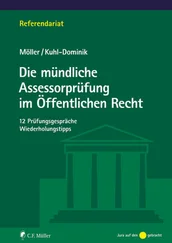“No.” She dumped the glass, straightened up, and looked at the pillar of night sky visible at the end of the alley. It was quite a peaceful spot, apart from the smell, which was powerful. She felt Dylan’s eyes on her again, and she turned around. Through for the night, he had taken off his apron; his chef’s jacket was stained with sauces and animal blood. His hands were scalded red. He mistook her curiosity.
“You and me should party sometime,” he said.
“Party?” she said, with distaste.
“Your boyfriend wouldn’t have to know.”
She had already taken a step back toward the door; no doubt he was growing bolder because of it. No doubt he didn’t really expect she would turn around again. So she stopped. Your boyfriend wouldn’t have to know. The light from the stree-tlamp seemed to swim as a wind blew through the leaves. The air smelled of eucalyptus and fish.
“Hey Dylan,” she said in a new voice, a voice that was like a sneer. Her eyes were locked on to his. He said nothing, but threw his cigarette away.
“How long does it take you, Dylan?” she said.
His eyebrows went up; even his surprise looked more like a simulation of surprise.
“That’s up to you, I guess,” he said. “Little girl.”
In the grip of some powerful urge — not self-destruction, exactly, since what Dylan said was true: no one would have to know — Molly reached out and lowered the zipper on his blue-and-white-checked chef’s pants. Stepping closer to him, she wove her hand through his jockey shorts until she could take his cock out and hold it in the air between them. She didn’t look at it. It was jumping slightly in her fingers. Though he tried not to, he kept looking over her head at the door to the kitchen. He took another half-step closer to her.
Something was wrong, though, inside her, and she fought against it. Then the fighting took the form of her resisting the pressure of Dylan’s one hand between her shoulder and neck as he tried to push her down on to her knees. She let go of him and stepped back.
“I’m sorry,” she said.
Quickly he pushed his cock back in and zipped up; with the outline of it so conspicuous, he seemed more self-conscious than he had when it was out levitating in the night air. He laughed, without smiling, not at all in a promising way.
“You little cunt,” he said evenly.
“I can’t, I’m sorry,” Molly said, and she pushed her way through the door and into the kitchen. She stayed in the dining room until her shift was over; then, telling her busboy that she felt sick, she left the restaurant without cashing out. Halfway home she sat down on a bench at a bus stop; the buses didn’t run at that hour. She sat and thought and didn’t come home until one-thirty, hoping John would be angry at her for it. But he wasn’t.
The struggles just to get by, to meet the rent and have enough left over for a couple of nights out of the apartment, were a blessing in a way; it kept them, for the most part, from lifting their heads to see the vast amount of time that lay before them at that tender age, time they had no plans to fill, time that represented an unfathomable test of the love that got them through the here and now.
The student film societies started up again, and Molly and John paid a dollar (he refused to sneak in) to see The Magnificent Ambersons, Downhill Racer, Meet Me in St Louis . On the walk home, Molly told John the story of Margaret O’Brien’s snowman-whacking scene, how Minnelli got her to throw a tantrum by telling her that someone had killed her dog.
“How do you know that?” John said.
“I read the textbook for one of the film courses I was auditing,” she said. “It was before we met.”
“Read it how?”
She looked at him, as if unsure of the tone of his question. “I would go to the UC bookstore,” she said, “and sit in the stacks in the textbook section, and read it there.”
They walked on in silence for a little while.
“What do you want to do?” John said.
From the stress on the word do , Molly knew what he was talking about; but she pretended not to.
“For a living, I mean,” John said. “Or a career, or whatever the word is. What kind of work would you most want to do?”
Molly shrugged, unhappy with the question.
“I don’t remember how long you have to have lived in California to establish residency, but if you had it you could enroll here really cheaply, you know. Of course, even a really cheap tuition, at this point we don’t have the money.”
“I couldn’t ask you to do that,” she said.
“Of course you could. I mean, maybe not right now.”
The streetlights flooded the leaves as they walked in step on the empty sidewalks toward home. Molly simultaneously loved and resented John for his optimism. She couldn’t have found the words to explain how hopeless it actually seemed.
Two weeks later Molly was walking up Telegraph, on her way to work, wearing her uniform, when two of her old housemates from Vine Street, Steve and Guy, appeared on either side of her. At first she was happy to see them, especially since they acknowledged her, or at least made no conspicuous effort to get away from her. Then, at the corner of Telegraph and Dwight, Guy took her arm and directed her away from the restaurant, in the direction of the house. “Richard wants to see you,” Steve said. Molly laughed at their serious expressions, but before she had even stopped laughing things had ceased to seem comic. They were acting so strangely that Molly had to remind herself that these were people whom she had shared a home with, people who had been quite charitable towards her, that there was nothing to worry about.
Richard was seated at the kitchen table; surprisingly, unlike Steve and Guy, he was not wearing his usual red polo shirt. Over his shoulder Molly could see that the furniture was now gone from the living room, replaced by six or eight foldaway beds. Richard nodded at the other two and they left the kitchen.
“I’m sorry to surprise you like that,” Richard said. He seemed to have acquired the ability to sit for long stretches without fidgeting, without moving at all. “But Steve and Guy didn’t want to cross your threshold, knowing how you live, and honestly I can’t blame them. Your father has attempted suicide. Through God’s intervention this attempt has failed. He’s in the hospital in Albany. Your mother has asked that you return home for a while.”
Molly felt her jaw trembling. She didn’t speak. There was something in Richard’s manner that made her fear the consequences of crying. He looked at her without any tenderness at all — only with a kind of professional conscientiousness, as if he were delivering a telegram and took care not to give any indication he had looked at it to see what it said.
“If you call and give her your address,” he continued, “your mother says she will wire you the money for an airplane ticket.”
Molly, try as she might, couldn’t really make vivid for herself what she had just been told, and his flat tone wasn’t making it any easier. “What about you?” she said finally.
“What do you mean?”
“I mean aren’t we both going back?”
His expression did not change; which is to say, his face did not resolve itself into any recognizable expression at all. “She asked me. I told her it was of no consequence to me, and that in any case her husband had now sinned mortally and without evidence of his repentance I could not be in his company.”
“How — I mean, did she say how he—”
“I don’t have any idea.”
“Tell me what else she said, anything at all.”
“She asked me to pass the message on to you, since she didn’t know where you were living, and I’ve done that. If you want to know more, I think you should call her. In fact, I think you should call her anyway.”
Читать дальше












